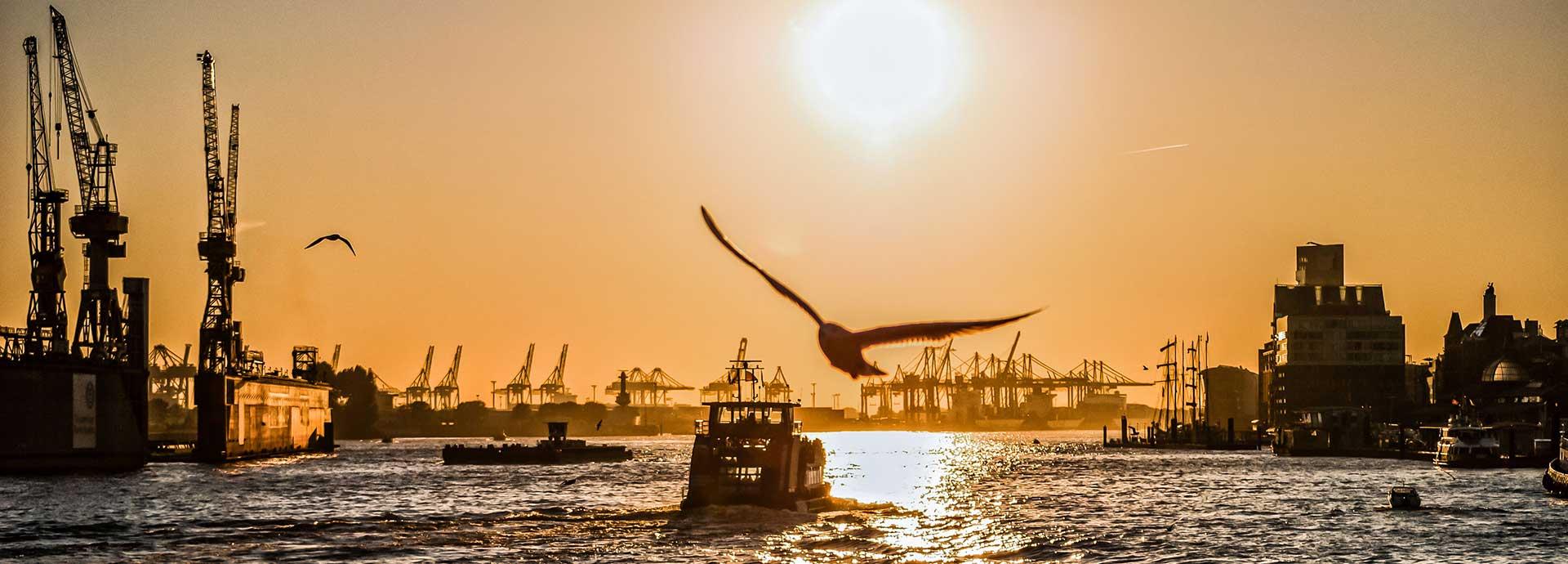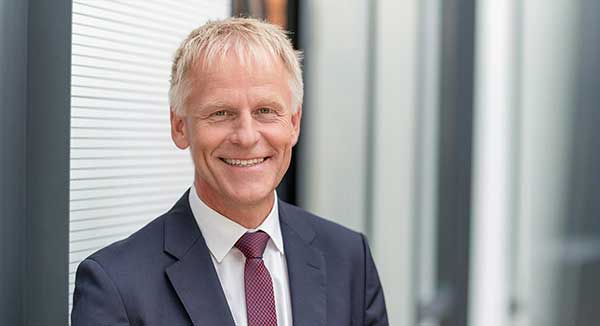

Jens Meier, CEO of Hamburg Port Authority, talks to Twentyfour7. about digitalisation in the shipping industry, the role of big data in the sector and the importance of cooperation between various stakeholders in the industry.

Our new series In Conversation poses tough questions to thinkers, decision-makers and influencers on issues that matter.
As the CEO of the Hamburg Port Authority, Jens Meier is a leading executive of a crucial sector. With Hamburg being a member city of the SEA20 forum - an international network of the world's foremost Smart and Ecologically-Ambitious marine cities – Meier is one of the best people to understand the convergence of data, logistics and shipping. Twentyfour7. met him to discuss the shipping industry’s transition into the digital world and the changes big data is bringing to this huge industrial sector.
1. What are your thoughts on the shipping industry going digital?
The Port of Hamburg has already defined its vision for the seaports of the future. Big data is very relevant, especially when it comes to the maintenance processes
in shipping. We think that with the Internet of Things (IoT) and new technologies such as 5G, we will be able to better connect vessels with ports and maintenance services and ensure that the maritime industry is fully embedded in the improved
global end-to-end logistics chains of the future.
With decision-support tools, we can handle delays better to significantly increase the port’s efficiency and then reduce inefficiencies across the entire supply chain and not just for the spare parts of the vessels, which may be needed for all logistics.
2. For a ‘smart ecosystem’ in global shipping to take form, it would require transparency among various players and data-sharing between competitors. How do you think shipping can tackle the issue of trust?
Consider
this: If you take trucking companies such as Mercedes, Volvo and MAN, they want to implement ‘clever’ transportation on traditional motorways. This can be achieved e.g. by implementing platooning. For that to work, these different
truck producers must find a way to communicate with each other. Otherwise they cannot platoon in an automatic-drive mode. Without connectivity, they cannot play together.
Same goes for shipping. Say, we have three big alliances of companies and, suddenly, one company jumps from one alliance to another. Then the containers this alliance is transporting on their vessels may be located to the wrong container terminal if this information is not shared.
This does not mean that all companies need to be on the same system. Ports need one communication platform to which all the different systems can plug in as a way to aggregate and share data from multiple platforms. Because, when you share data, you are much more efficient.
3. In terms of rolling this out in maritime, it's hard to prove the financial benefits of such a system. However, companies will eventually need to take a leap and adopt the new digital platforms. Is it a bit of a chicken and egg situation?
Last week I had the chance to chat with Eric Schmidt, the former executive chairman of Google. Once upon a time, Google was just a vision, a fledgling idea. But it went on to change the world.
What the future of shipping will look like is an interesting debate. There is definitely a need to establish a solid IT infrastructure. Not only that, but we will also need to establish a smarter electricity infrastructure for electrical vehicles.
In Hamburg, we are having a debate on if and how a new IT infrastructure should be made public. The problem could be solved very simply by getting it funded by the government. This could be very helpful but first we have to ensure that the willingness to share data is there. Also, we should not tell start-ups that they cannot change anything.
Lots of things will change in the near future: customer behaviours, the way we consume and so on. We need to adapt. We need to be open to change.
4. Advancements in automation and digitalisation will have a profound impact on the port workforce. How do you see, for example, stevedoring evolving alongside tech deployment? What does the future port workforce look like?
There
will be an impact, but we must always look at it in a positive way. People are afraid of losing their jobs because of digitalisation. However, if you look at the data, as a consequence of the changes, people are living longer, and having healthier
lives and poverty is decreasing. All this is also a result of automation.
Technological developments and digitalisation will surely have a profound impact on the workforce. But we have to make sure that we bring the workforce with us into the future and that they receive the education needed to keep up with the technology.
5. Forty years ago, a container ship may have carried a 50-strong crew. Today, this has decreased to below 20. Looking at the trajectory, do you think that we may one day be looking at a container vessel manned by two, and them being technologists?
I think there are some areas where you cannot automate and there are areas where we can use automation much more. Merchant vessels lie somewhere in between. We have the autopilot mode for planes. But we cannot eliminate the human factor on waterways.
I think on one hand we will always keep some people on board. On the other, logistics can be fully automated.
6. Hamburg is a member of the SEA20 network. How do you view the relationship between the port and marine city? Do you feel citizens are somewhat disconnected from the importance of the port?
In some parts of the world, this
may be true. But in Hamburg, the port is the focal point. We hold parties, illuminate the port and keep the locals connected to the port. We also do many sustainability-related events. We are constantly looking at ways of reducing noise, pollution
and emissions. Maintaining the relationship between port and inhabitants is an on-going process and something that we take seriously every day.
7. The International Maritime Organization (IMO) was criticised as NGOs accused the organisation of moving too slowly on carbon emission reduction in maritime. The onus appears to be on port cities and marine businesses to instigate change. What are your thoughts on this?
What many people do not understand is that when you are able to avoid traffic jams, you are able to reduce the carbon footprint. Harmonising operation are a benefit to everyone. When stakeholders partner up, everyone can benefit. I would not
criticise the Secretary-General of the IMO, Kitack Lim. He is one of the former presidents of the Port of Busan. So, he is very familiar with maritime issues. It is always hard to find a compromise that suits everyone the world over. He tries
to do that. The most important thing is that we are all heading in the right direction.

